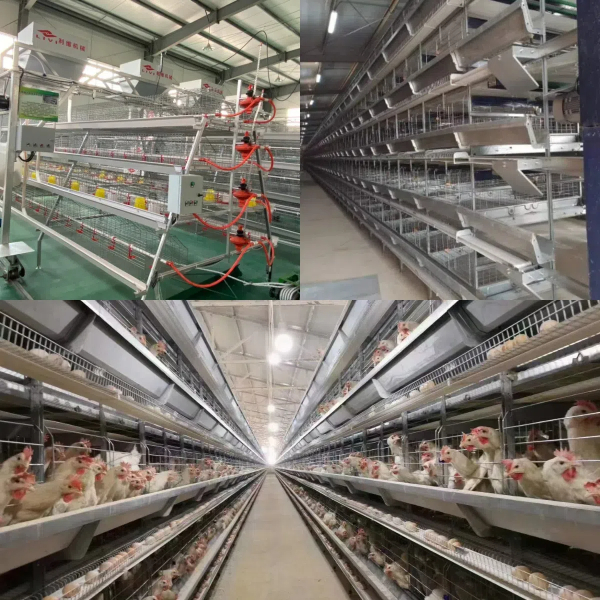In Nigeria, poultry farming is an important part of agriculture and has a significant impact on improving the living standards of local people and economic development. This article will explore several key aspects of poultry farming in Nigeria, including the selection of appropriate poultry breeds, farming techniques, feed management, disease prevention and control, and marketing strategies.
Choosing the right poultry breeds
Nigeria has a diverse climate, ranging from tropical rainforests to the arid edge of the Sahara, which requires poultry breeds to be able to adapt to different environmental conditions. Common poultry breeds include local breeds and introduced commercial breeds. Local breeds are highly adaptable and disease-resistant, but have low production efficiency; while commercial breeds are highly productive, but have higher requirements for the environment and feeding management.
Farming technology
Poultry farming techniques in Nigeria range from traditional free-range farming to modern intensive farming. Modern farming uses advanced farming equipment and technologies, such as automatic feeding and drinking systems, constant temperature and humidity farming environments, etc., which can significantly improve production efficiency and biosafety levels. However, these technologies require large initial investments and operating costs. Livi Poultry Machinery, as a popular poultry equipment supplier in Nigeria, perfectly solves this problem. They provide a variety of automated poultry machinery and equipment, and can also install them on site for you. The investment is not very high, which can help your poultry business.

Feed Management
Feed is the biggest part of the cost of poultry farming, especially protein feed. Nigerian poultry farmers usually use corn and soybeans as the main feed sources. Due to fluctuations in domestic corn and soybean production, feed prices are often affected. Therefore, some farmers have begun to try to use alternative feeds, such as cassava and straw, to reduce costs.
Disease Prevention and Control
Poultry diseases are a major challenge in the farming industry, especially in intensive farming environments. Common diseases include avian influenza, Newcastle disease and salmonella infection. Preventive measures include regular vaccination, strict biosecurity measures and timely disease monitoring. In addition, it is also very important to educate farmers to identify early symptoms of diseases.
Marketing Strategy
Poultry products in Nigeria are mainly sold to local markets, including fresh meat and eggs. With the acceleration of urbanization, the market demand for poultry products continues to grow. Effective marketing strategies include building a brand, improving product quality, and selling through multiple channels, such as supermarkets, farmers’ markets, and online sales platforms.
How to start a chicken farm in Nigeria faster
For Nigerian poultry farmers who want to start a chicken farm quickly, well-known manufacturers and suppliers such as LIVI Poultry Equipment Manufacturers offer a range of options that suit different needs and budgets. They provide a full range of automated chicken farming equipment to help Nigerian farmers start raising chickens more easily.
Summary
In short, the poultry farming industry in Nigeria is an industry with broad development prospects. The economic and social benefits of poultry farming can be further improved by adopting breeding varieties suitable for local conditions, improving breeding technology, rationally managing feed, effectively preventing and controlling diseases, and adopting flexible marketing strategies.